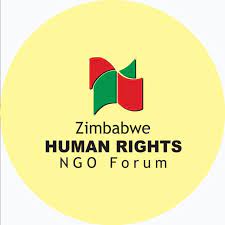A total of 153 opposition political party supporters, election agents and their families were in urgent need of relocation or safe housing by the end of September 2023 owing to Zimbabwe’s unprecedented wave of post-election retributive violence following the August elections, the Zimbabwe Human Rights NGO Forum has reported.
The Forum expressed these concerns to the African Commission on Human and Peoples’ Rights (ACHPR) at its 77th Ordinary Session under Agenda Item 4e while presenting on Zimbabwe’s overall human rights situation in the context of the recently ended 2023 national elections.
“We are gravely concerned by the unprecedented wave of post-election retributive violence that has been witnessed in Zimbabwe in the aftermath of the 2023 Harmonised Election. These include abductions/enforced disappearances that lead to torture; malicious damage to property through arson, forced displacement of victims of arson; threats, intimidation, harassment in opposition political party strongholds, particularly of opposition political party election agents which have left victims in dire need of relocation out of justifiably fearing for their lives,” said the Forum recently.
“By 30 September 2023, a total of 153 opposition political party supporters, election agents and their families were in urgent need of relocation or safe housing. “
The Forum noted that recent arrests of lawyers Doug Coltart, Tapiwa Muchineripi and more recently Kenias Shonhai needed to be condemned.
While the government maintains the elections were ‘free, fair, and peaceful,’ the Forum stated this contradicted its own views as well as other Election Observation Missions, among them SADC, the European Union and the Commonwealth accredited to watch the elections.
Concerns raised before the ACHPR included banned gathering by police, detention of opposition activists, failure of the state-controlled media to provide equal attention to the opposition and partisan use of traditional leaders, who were “complicit in the death of an opposition supporter who was allegedly stoned to death with the police’s version that he was run over by a lorry carrying opposition supporters.”
Partisan policing by the Zimbabwe Republic Police, according to the Forum, remains a serious concern.
“An example of such was the arrests of 39 Zimbabwe Election Support Network (ZESN) and Elections Resource Centre (ERC) staff members and volunteers who were arrested while conducting lawful, non-partisan election observation work,” said the Forum, underlining how the Zimbabwe Electoral Commission (ZEC) had encouraged organisations to conduct parallel tabulation.
The Forum mentioned use of lawfare as another concern that suppressed dissenting voices in the pre-election phase.
“In Zimbabwe, weaponisation of the law is a growing trend that demonstrates the desire by the government to stifle dissent and close the civic and democratic space. The promulgation of the Criminal Law (Codification and Reform) (Amendment) Act which contains provision requiring patriotism hence its referral as the Patriotic Law is of major concern,” said the Forum.
“This law will violate the provisions of the charter as it has to do with the rights to association and expression. Penalties under the act including the death penalty, revocation of citizenship, deportations and being banned from either standing as a candidate in an election or being denied the right to vote are concerning.”
The Forum noted their concern derives from observations that their participation in the ACHPR Session is “potentially criminal” because the legislation criminalises speaking badly against the country.
“Recent remarks by President Emmerson Mnangagwa about the reintroduction of the Private Voluntary Organisation (Amendment) Bill which had lapsed upon the dissolution of Parliament is concerning. We previously advised this Commission that we had engaged with His Excellence over this law as CSOs and our hope was that we would get more positive feedback. We were not anticipating a re-introduction of the law,” added the organisation.
“We cannot speak of the use of lawfare without citing the plight of Job Sikhala. Honourable Chairperson, Sikhala’s continued pretrial incarceration is a grave travesty of justice that requires urgent intervention. By June 14, 2023, Sikhala had clocked exactly one year in pretrial detention.”
Sikhala has been denied bail a record 15 times and remains behind bars for one year and three months, which the Forum said illustrated an extreme violation of Article 7 of the Charter which guarantees basic fair trial rights .
“We urge you to please press upon the Zimbabwean government to release him immediately and allow him to go home to his wife, children and family,” said the organisation.
The Forum asked the Chairman of the Commission to “exert pressure on the Zimbabwean Government to act immediately and put an end to the unprecedented levels of post-election victimisation in the country.
“The government must show a genuine commitment to do so by setting up an independent commission of enquiry to conduct thorough, transparent and expeditious investigations into all reported instances of post-election related human rights violations. Findings must be made public and prosecute all those who have been implicated,” said the organisation,
“The commission must exert pressure on the Zimbabwe government to act immediately to restore public faith in the judiciary and in its criminal justice system by facilitating the immediate and unconditional release of all political prisoners.”

